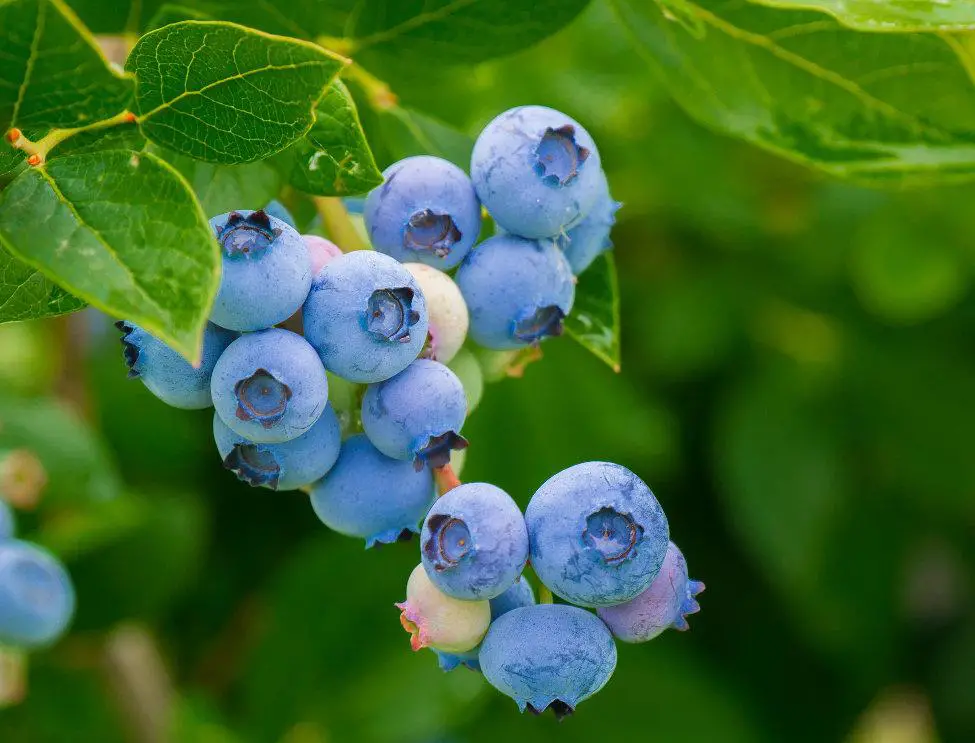Blueberries are sweet, juicy berries with vibrant foliage. To ensure your blueberry bushes thrive and produce a bountiful harvest in your garden, consider the magic of companion planting. This article will discuss the best companion plants for blueberries in your vegetable garden, creating a harmonious and fruitful ecosystem.
The Beauty of Companion Planting
Companion planting is like arranging a symphony in your garden. It involves planting specific crops near each other to benefit one another in various ways, such as improved soil quality, pest control, and overall plant health. By choosing the best companions for your blueberries, you can create a garden that thrives in harmony.
Blueberries’ Ideal Companions: The Basics
Blueberries have specific needs and preferences that make certain plants great companions. Here’s what you need to know:
- Acid-Loving Friends: Blueberries thrive in acidic soil with a pH between 4.5 and 5.5. Therefore, companion plants should also prefer acidic soil.
- Shade-Tolerant Plants: Blueberries love sunlight, but they benefit from some afternoon shade. Consider companions that can provide this shade without competing for nutrients.
- Pest-Repelling Partners: Some companion plants deter common pests that can harm blueberries, like aphids and Japanese beetles.
The Perfect Plant Partners for Blueberries
Now, let’s dive into the ideal companions for your blueberries:
- Azaleas and Rhododendrons: These acid-loving shrubs not only complement blueberries aesthetically but also help maintain acidic soil conditions.
- Ferns: Ferns can provide partial shade to your blueberry bushes while adding a lush, green look to your garden.
- Lupines: Lupines are nitrogen-fixing plants that help improve soil quality by adding essential nutrients to the earth.
The Beauty of Wildflowers: Aesthetics and Function
Planting wildflowers near your blueberries not only adds visual appeal but also serves practical purposes:
- Pollinators: Wildflowers attract beneficial pollinators like bees and butterflies, which are essential for blueberry pollination.
- Pest Control: Some wildflowers can deter pests like aphids, protecting your blueberry bushes.
Herbs as Helpers: Thyme and Oregano
Herbs can be excellent companions for blueberries. Consider planting thyme and oregano:
- Thyme: Thyme adds a delightful aroma to your garden and can help deter pests like aphids and slugs.
- Oregano: Oregano’s strong scent can keep pests away from your blueberries, and you can enjoy its culinary uses in your kitchen.
Minty Fresh Benefits: Peppermint and Spearmint
Mint plants can offer both flavour and function in your garden:
- Peppermint and Spearmint: These aromatic herbs can deter insect pests while providing a delightful minty aroma to your garden.
Companion Planting Tips: A Few Guidelines
To make the most of companion planting with your blueberries, here are some helpful tips:
- Spacing: Allow ample space between your blueberry bushes and companion plants to prevent competition for nutrients and sunlight.
- Soil Requirements: Ensure your companion plants share similar soil preferences, especially the need for acidic soil.
- Beneficial Insects: Encourage the presence of beneficial insects by planting flowers that attract pollinators and natural predators of garden pests.
Cultivating delicious and nutritious blueberries in your home garden can be even more rewarding when you harness the power of companion planting. By understanding which plants work best alongside your blueberries, you can foster a thriving garden ecosystem that benefits all your crops. So, gather your blueberries and their plant pals, and watch your garden flourish with flavour, diversity, and protection from pesky pests.
